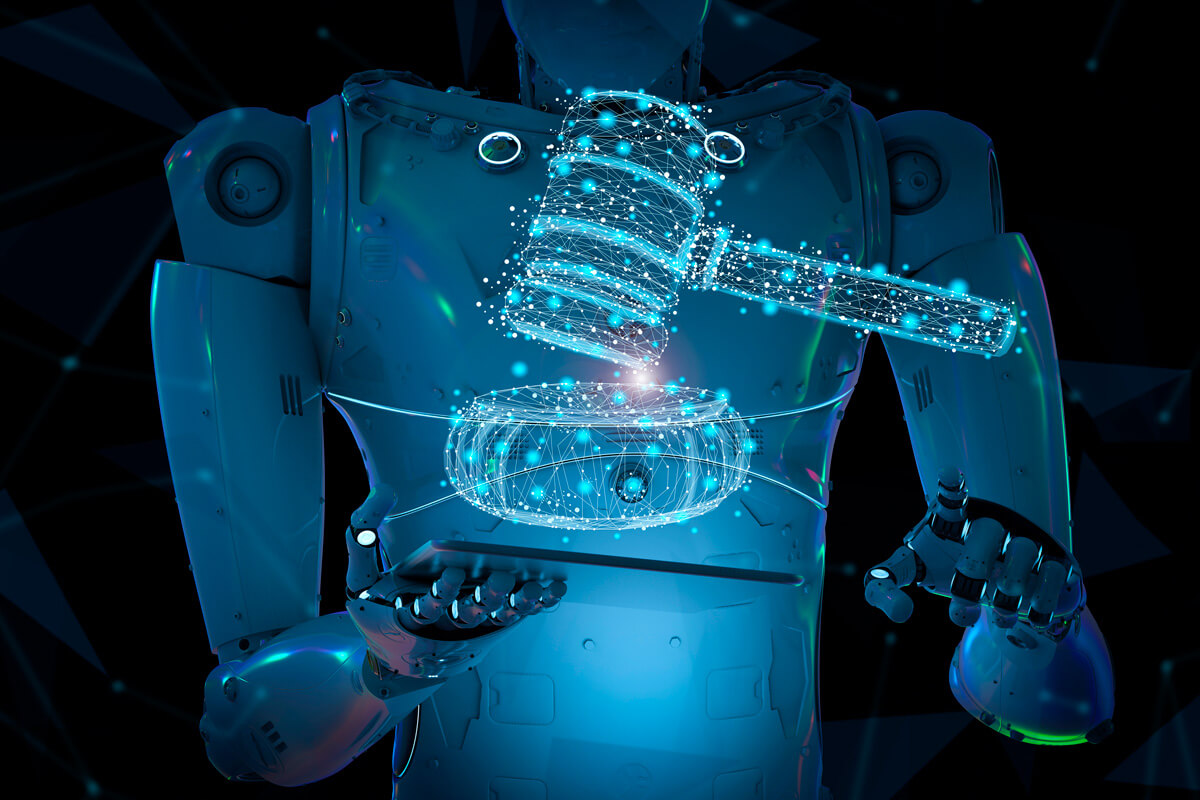
Lawyers have long made for compelling protagonists in popular culture—it’s a job that requires emotional intelligence and quick-witted oratory, at least if you go by courtroom dramas. But in the real world, effective lawyering increasingly hinges on the use of data analytics and artificial intelligence (AI).
Zaid Hamzah, founder of Future Law Academy and the CEO and General Counsel of Asia Law Exchange, traces the beginning of advanced legal analytics to around 2012, when the term “Legal Analytics” and “Legal AI” started appearing on websites and various legal publications. Since then, the use of natural language processing and machine learning—both aspects of AI—have become common in mature markets like the US and UK. In China, AI-assisted sentencing is even helping to speed up the processing of cases in the judicial system.
“Over the last seven to eight years, these technologies have made a profound impact on the legal profession,” he notes. “Data forms the foundation of AI. The rise of analytics tools and the ability to develop machine learning algorithms have given birth to legal AI. Legal AI has transformed the legal industry by automating areas such as knowledge management, contract drafting, due diligence, predicting court outcomes, and workflow management through robotic process automation.”
Lawyers can now use legal AI to skip the grunt work of reviewing millions of pages of legal documents, and still obtain a fairly accurate picture of the outputs of their legal review. For instance, they can more easily gather data and gauge how a particular judge thought in the past and make decisions based on cases that stretch over decades. This area is called “judicial analytics” and the use of legal AI can show how a judge reasoned over a particular issue.
New tools for a new generation
With the way things are going, the next generation of lawyers naturally need to be equipped with the right data and AI skills so they can harness these technologies to promote greater efficiency and greater access to justice. Against this background, Zaid has worked with Singapore Management University’s (SMU) School of Law to design an SMU-X course called ‘Legal Analytics and Artificial Intelligence in Law’.
This course focuses on integrating aspects of data analytics and AI in the field of law, and trains students to be able to collaborate with data science teams to design and develop legal products and services driven by data and AI. As the SMU-X course involves sending students out into the real world, they will also have the opportunity to learn how to manage and design legal AI projects for real-life law firms or corporate legal departments.
“The idea is for them to understand the basics of how analytics and AI work in the context of lawyering, and pick up practical skills for managing teams of coders, programmers and data scientists, who will then translate legal contents into software programmes or legal processes,” Zaid explains. In addition, students will also be taught how data and AI apply to business strategies and management processes, and the ethics involved in a responsible legal AI practice, he adds.
AI for advanced legal reasoning
The potential of legal AI to transform the world of law is still largely untapped in Asia, Zaid observes.
“Today, there are attempts to develop legal AI that can reason like a lawyer or judge,” he points out. “While we’re still at the very early stages of computational thinking in law, developing a legal AI engine that can understand nuances in human behaviour like a real lawyer would be ground-breaking. The next stage is going to be about using AI for advanced legal reasoning through pattern recognition, concept modelling through the use of advanced natural language processing, and deep learning based on neural networks.”
Does that mean that human lawyers may eventually become irrelevant? Zaid, for one, chooses to see technology as an enabler that would complement and strengthen the lawyering skills of human lawyers. By leaving “the drudgery of mechanical finding, retrieval and basic analysis to the machines”, lawyers of the future will be freed to focus on higher value and more strategic work, he reasons.
What’s critical is that lawyers have to reskill themselves and to continue to relearn and upskill. They must learn about emerging technologies like AI but, more importantly, learn how to apply these technologies to enhance the lawyering process.
Zaid himself had to to go back to school to learn about data science. He studied at the Singapore Polytechnic over a three-month period to pick up new knowledge and skills related to AI and analytics. As part of his reskilling, Zaid engaged with global companies like IBM and Microsoft to learn how they are changing the nature of lawyering through data science.
Says the 60-year-old: “In my view, even the senior lawyers have to reskill, especially if they are overseeing teams of younger lawyers. One has to relearn and reskill, so continuous lifelong learning must go on. Can you imagine a lawyer today who never learnt to use Microsoft Word? He wouldn’t be able to function. Likewise, in the future, all lawyers must understand legal AI and legal analytics to be able to function effectively.

